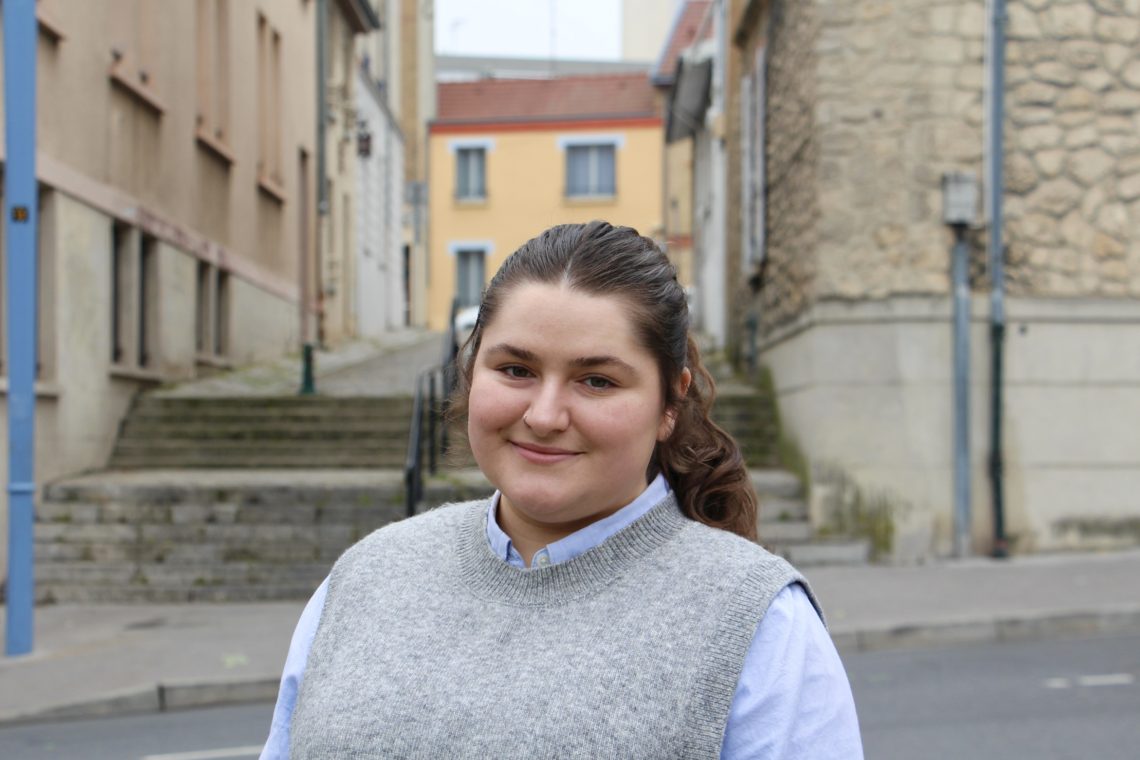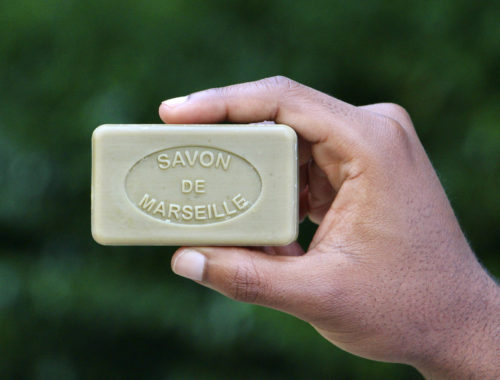
How to Start a Non-Teaching Career in France: Maria’s Story
Making a life in France as an American is anything but simple. I’d hoped to someday move to France since I was a child, but the difficulties involved in making it happen became more apparent as the years went on. Significant costs, visa and residence permit rules, and differences in language and culture are just some of the obstacles that make becoming an expat a real challenge. Add to those issues the fact that I wasn’t interested in what many see as the obvious career choice for anglophones in France (AKA becoming an English teacher), and I definitely had my work cut out for me. To better understand how I began my career in France as a foreigner, let’s trace my journey from college freshman in the United States to young professional in France.
During my four years at the University of Mary Washington, two topics defined my undergraduate career: Internationality and Residence Life. I was a double major in International Affairs and French, and when I wasn’t in the classroom, I was working as a Resident Assistant, a Summer Resident Assistant, a Senior Resident Assistant, or a Residence Life Assistant with the Office of Residence Life & Housing.
In my lectures, I learned about global conflict, multilateral cooperation, international economics, and foreign policy as well as the French language and the Francophone world. For my academic endeavors, I earned multiple scholarships, membership in four honor societies, and a summa cum laude designation on my diploma. At work, I built community in the residence halls, mediated conflicts, handled crisis situations, and guided undergraduate students through the ups and downs of their college experience. My dedication was rewarded with diverse professional experiences, successive promotions, and even a Senior Resident Assistant of the Year award.
I continued to blend the themes of both international and student affairs when, after graduation, I moved to Troyes, France to teach English to French middle and high schoolers with the Teaching Assistant Program in France (TAPIF). During my academic year as an English assistant, I helped improve my students’ English fluency and cultural awareness while gaining experience in a French work environment, brushing up my public speaking skills, and improving my cross-cultural communication abilities. While my time as a TAPIFer did confirm that I wasn’t interested in a teaching career, it also encouraged me to pursue studies that would integrate my love of all things international with my passion for people.
Thus, I began my master’s degree in Public Law: European Integration and Global Governance at the Université de Reims Champagne-Ardenne in Reims, France. The first year of my program was very juridical – I took courses like Substantive Law of the European Union (EU), Environmental Law, Immigration and Nationality Law, and International Law. The second year, however, was much more focused on International Relations. Classes like International and European Networks and Project Management, Legal and Political Transformations of the EU, European Governance, and Global Issues: Migration, Climate, External Leadership of the EU kept me immersed in thought about finding just solutions to international issues.
In addition to my rigorous coursework, I wrote and defended a master’s thesis entitled Associer les inégalités sociales et le changement climatique : Une étude comparative des contextes et approches aux États-Unis et dans l’Union européenne investigating the link between climate change and social inequality in the US and the EU as well as those actors’ approaches to addressing this phenomenon. I also completed an internship at a French organization in the international humanitarian sector to round out my studies. By the time I officially graduated with highest honors, I felt prepared to look for a job where I could apply my various skills in an international context.
@the_francofile Want to know more about my experience? Ask me anything! 🇺🇸🇫🇷⚖️ #law #droit #lawschool #facdedroit #lawstudent #etudiantendroit #lawgraduate #diplome #mastersdegree #master #master2 #graduatedegree #frenchschool #americaninfrance #americanabroad #studyabroad #studyinfrance #mastersabroad #moveabroad #liveabroad #workabroad #lifeinfrance #frenchlife #expat #expatlife #immigration #immigrant #etrangerenfrance #internationalstudent #etudiantetranger #foreignstudent #learnfrench #speakfrench #languagelearning #DALF #mémoire #thesis #internship #internshipabroad #stage #ellewoods #legallyblonde #larevancheduneblonde ♬ original sound – nicolette
I sent out a total of 44 applications to a variety of establishments, including non-governmental organizations, international organizations and agencies, French and EU public institutions, development institutions, law firms, companies, research institutes, and universities. I targeted roles that required the knowledge I gained during my undergraduate and graduate education, the abilities I honed through my work experiences, and the expertise I’ve gleaned from co-running The Francofile and collaborating with Campus France as an e-ambassadrice. To my delight, I found the job for me!
My first post-master’s degree job, located in Palaiseau, France, deals with International Relations in the context of Higher Education. Amazingly, my work combines my proficiencies in International Affairs and Public Law, my penchant for collegiate work, my English-French bilingualism, and my experience as an international university student in France. I couldn’t have dreamt up a role that better fits my unique background, and I’m so thankful to have succeeded in finding work that I enjoy as an American in France.
Though my story isn’t what some people might traditionally expect of a young American woman in France (i.e. participating in a study abroad program, pursuing an English-teaching career, or coming to France for love), it’s a tale of diligence, grit, and passion. Thanks to my achievements, I am overjoyed to be a resource for other foreigners hoping to make their way in France. Are you interested in starting a career in France? Want to know more about my journey as an American abroad? Let me know in a comment!
You may also like…
Here’s how we found jobs in France as Americans!
Our answers to your questions about working in France!
You May Also Like

How to Visit Picturesque Nancy, France on a Budget
June 30, 2021
How To Get Married In France as Two Foreigners: Pre-Ceremony Organization
September 14, 2022


4 Comments
CrazyCron
I am very happy that you have found work in a field that enriches you, but I feel as if you both write like you are above becoming an English teacher. Even if many young American women in France choose to become English teachers, this should be as valid of a career choice as yours. I feel that you write as if it’s not. Teaching is not easy. Not just anyone off the street can become an English teacher. You have to be qualified, have substantial education, be an expert in the English language and anglophone cultures, as well as be able to speak French to pass the “concours”, which is notoriously rigorous. We shouldn’t be saying anything but congratulations to our American sisters and brothers who succeed at achieving lucrative, full-time, post-masters work in France, whether they teach, are lawyers, work in Logistics, or anything in-between.
Jalen & Maria
Hello, thanks for reading our posts. We understand your sentiment and would like to provide some additional context.
We agree that teaching is a valid career choice for those interested in pursuing it. We have previously written on this blog about how difficult becoming an English teacher in France can be (not to mention the fact that the career itself is also challenging) in order to break down the preconceived notion that teaching English in France is somehow taking the easy way out. We agree that congratulations are in order for those who are sincerely enthusiastic about teaching English in France and make that goal their reality.
While we would not qualify ourselves as “above becoming an English teacher,” we can say that it is not a career that either of us wanted to pursue. The fact remains that teaching English in France is a much more popular career choice than the paths that we took – so much so, in fact, that many people are under the impression that teaching English is the only viable career choice for anglophones in France. Over the years, others assumed time and time again that we would become teachers and even informed us that succeeding in starting careers in France in anything other than teaching is virtually impossible.
Because we took the road less traveled and did succeed in completing graduate studies and finding work in fields that some might not traditionally expect of Americans in France, it is an integral part of our mission to encourage our readers to reflect upon the breadth of study and career options available outside of teaching. We are tired of the narrative that leads people to believe that they can’t pursue their passions and live abroad simultaneously.
It has always been our opinion that those who want to teach in France should absolutely do so, and those who don’t want to teach in France should not feel obliged to do so. The former group benefits from widespread support for their career choice and an array of existing content online from people who have become teachers in France. The latter group must contend with the assumption of failure and the fact that little content from people who have broken the mould exists online. This reality is what adds a layer of difficulty for people who would like to start a non-teaching career in France.
We regret that highlighting the fact that we are anglophones in France who didn’t pursue English teaching careers is controversial. However, we know that there are people out there who, like us, want to build a life in France without becoming full-time English teachers. We respect and commend anglophone teachers in France, but it is our goal to ensure that others know that teaching is not the only option.
We hope that this clarifies our thoughts and that you understand where we’re coming from in these articles about our personal parcours that led to our non-teaching careers here in France.
venkatesh tripathi
Hello your posts are really helpful. I really appreciate them.
Is it possible to do a data analytics degree along with the tapif program?
I was wondering if a public university allows to do data analytics and teach in tapif simultaneously.
Jalen & Maria
Hello, Venkatesh. In our experience, working a job during our master’s degree programs outside of the built-in internships was not possible due to the amount of time we had to spend in class as well as our unfixed/constantly changing schedules.
This is not the case for everyone though, and depending on your program’s schedule, both might be possible. You will have to reach out to your program(s) of interest and look on their website(s) to get an idea of what your potential schedule might look like.
Foreign students in France are allowed to work a certain number of hours per year while doing their studies by nature of their residence permits, so your university should not explicitly tell you that you cannot work. However, it will be up to you to make sure that you are fulfilling both your academic and professional obligations sufficiently, keeping in mind that you may be forced to prioritize one over the other. Good luck!